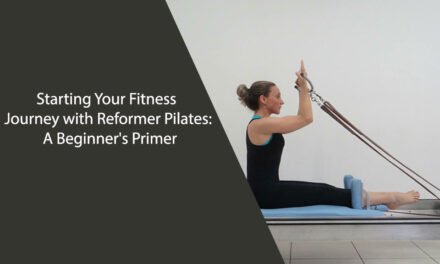Aquatic fitness is emerging as a key component in the realm of health and wellness, offering a refreshing and effective alternative to traditional gym workouts. This guide plunges into the world of water-based exercise, exploring its myriad benefits and diverse program offerings available in wellness centers. From gentle aquatic therapy to vigorous water aerobics, these programs cater to a wide range of fitness levels and health goals. Aquatic fitness stands out for its unique ability to provide a low-impact yet high-resistance workout, making it suitable for everyone from athletes to seniors. It combines the therapeutic qualities of water with the rigor of exercise, creating a balanced approach to physical wellness. As we dive deeper, we’ll discover how incorporating aquatic fitness into your routine can enhance not just physical health but also provide mental and emotional benefits, making it a holistic addition to anyone’s wellness journey.

Table of Contents
Benefits of Water-Based Exercise
Water-based exercise, a key component of aquatic fitness programs, offers a myriad of health benefits, making it a popular choice in wellness centers. The buoyancy of water reduces the impact on joints, making it an ideal workout medium for those with arthritis, obesity, or recovering from injuries.
Exercising in water provides resistance, which helps in building strength and endurance more effectively than traditional workouts. It also enhances cardiovascular health and promotes better circulation. Another significant benefit is the role of aquatic fitness in weight management and Body Contouring & Fat Reduction. The water’s resistance coupled with the effort to move through it results in higher calorie burn compared to similar exercises performed on land.
Additionally, water-based exercises have a relaxing and calming effect, reducing stress and improving mental well-being. The versatility and low-risk profile of aquatic exercise make it a suitable and beneficial workout option for a wide range of individuals, contributing to overall fitness and health.
Popular Aquatic Fitness Programs
Aquatic fitness programs have gained immense popularity in wellness centers due to their variety and adaptability to different fitness levels and goals. These programs range from high-energy water aerobics, which combines cardio and strength training in a lively group setting, to more serene options like aqua yoga, where traditional yoga poses are adapted to a water environment, offering enhanced relaxation and flexibility benefits.
Another favorite is aquatic Zumba, which brings the fun and intensity of Zumba dance into the pool, making for an exhilarating low-impact workout. For those seeking a more rigorous challenge, there are programs like water-based interval training, which involve alternating high-intensity exercises with periods of rest, providing an effective way to improve cardiovascular fitness and strength. These varied programs ensure that aquatic fitness remains an engaging and effective option for people of all ages and fitness backgrounds, contributing to overall health and wellness in a dynamic and enjoyable way.
Aquatic Therapy for Injury Recovery
Aquatic therapy, a key component of wellness programs, is highly effective for injury recovery, offering several unique benefits:
- Buoyancy: Reduces stress on injured areas, allowing for easier movement.
- Resistance: Water provides natural resistance, aiding in muscle strengthening.
- Hydrostatic Pressure: Helps reduce swelling and improve circulation.
- Temperature: Warm water can soothe pain and relax muscles.
- Flexibility: Water buoyancy assists in improving range of motion and flexibility.
This form of therapy is particularly beneficial for individuals recovering from joint injuries, surgeries, or chronic conditions like arthritis. The therapeutic properties of water enable patients to perform exercises that might be too painful or difficult on land. The American Physical Therapy Association provides additional resources on the benefits and techniques of aquatic therapy.
By incorporating aquatic therapy into recovery programs, patients can experience a quicker and more comfortable healing process, making it a valuable tool in rehabilitation and wellness.
Water Workouts for All Ages
Water workouts in wellness centers offer an inclusive fitness solution suitable for all ages, from young adults to seniors. These aquatic exercises are designed to cater to a wide range of physical abilities and health conditions, making them an excellent option for family fitness.
For younger individuals, water workouts can be dynamic and vigorous, providing an effective cardiovascular and strength-training regimen. For older adults, these exercises offer a gentler, low-impact option, ideal for maintaining joint health and mobility. The buoyancy of water reduces strain on the body, making exercises safer and more comfortable, especially for those with age-related concerns.
Additionally, incorporating specific foods into one’s diet can complement the benefits of aquatic exercise, aiding in muscle recovery and overall wellness. The adaptability of water workouts ensures that individuals at any stage of life can enjoy and benefit from aquatic fitness, making it a versatile and valuable component of health and wellness programs.
Integrating Aquatic Fitness in Daily Life
Incorporating aquatic fitness into daily life can be a refreshing and effective way to enhance overall health and wellness. Here are some tips to seamlessly integrate this form of exercise:
- Regular Scheduling: Set aside specific days and times for aquatic workouts, creating a consistent routine.
- Diverse Activities: Mix up activities like swimming, aqua aerobics, or water yoga to keep the routine engaging.
- Setting Goals: Establish clear fitness goals, whether it’s improving endurance, flexibility, or strength.
These steps help ensure that aquatic fitness becomes a sustainable and enjoyable part of your lifestyle. Regular scheduling builds a habit, varying activities keep it interesting, and goal setting provides motivation and a sense of accomplishment.
The Centers for Disease Control and Prevention offers additional guidelines and benefits of regular physical activity. By adopting aquatic fitness as a regular practice, you can enjoy a fun, low-impact way to stay active and healthy.
Making a Splash in Wellness
Embracing aquatic fitness programs marks a significant step towards a holistic approach to health and wellness. These water-based activities offer a unique blend of enjoyment and health benefits, suitable for individuals of all ages and fitness levels. Integrating aquatic fitness into your wellness routine not only enhances physical health but also contributes to mental and emotional well-being, proving to be a valuable addition to any lifestyle.





